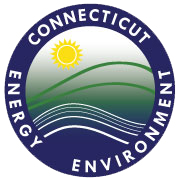
Environmental laws are laws that protect the environment. Environmental law is the collection of laws, regulations, agreements and common law that governs how humans interact with their environment. This includes environmental regulations; laws governing management of natural resources, such as forests, minerals, or fisheries; and related topics such as environmental impact assessments. Environmental law is seen as the body of laws concerned with the protection of living things from the harm that human activity may immediately or eventually cause to them or their species, either directly or to the media and the habits on which they depend.
Environment and Climate Change Canada is the department of the Government of Canada responsible for coordinating environmental policies and programs, as well as preserving and enhancing the natural environment and renewable resources. It is also colloquially known by its former name, Environment Canada.

Environmental protection is the practice of protecting the natural environment by individuals, groups and governments. Its objectives are to conserve natural resources and the existing natural environment and, where it is possible, to repair damage and reverse trends.
A chemical accident is the unintentional release of one or more hazardous chemicals, which could harm human health and the environment. Such events include fires, explosions, and release of toxic materials that may cause people illness, injury, or disability. Chemical accidents can be caused for example by natural disasters, human error, or deliberate acts for personal gain. Chemical accidents are generally understood to be industrial-scale ones, often with important offsite consequences. Unintended exposure to chemicals that occur at smaller work sites, as well as in private premises during everyday activities are usually not referred to as chemical accidents.

Environmental impact assessment (EIA) is the assessment of the environmental consequences of a plan, policy, program, or actual projects prior to the decision to move forward with the proposed action. In this context, the term "environmental impact assessment" is usually used when applied to actual projects by individuals or companies and the term "strategic environmental assessment" (SEA) applies to policies, plans and programmes most often proposed by organs of state. It is a tool of environmental management forming a part of project approval and decision-making. Environmental assessments may be governed by rules of administrative procedure regarding public participation and documentation of decision making, and may be subject to judicial review.

The Netherlands Environmental Assessment Agency is a Dutch research institute that advises the Dutch government on environmental policy and regional planning issues. Operating as an autonomous entity within the Dutch Government organization, specifically under the Ministry of Infrastructure and Water Management. While primarily associated with the Ministry of Infrastructure and Water Management, PBL's expertise is also sought by other government departments, including the Ministry of Economic Affairs, the Ministry of the Interior and Kingdom Relations, the Ministry of Agriculture, Fisheries, Food Security and Nature, and the Ministry of Foreign Affairs. The research fields include sustainable development, energy and climate change, biodiversity, transport, land use, and air quality. It is one of three applied policy research institutes of the Dutch government, the other two being Centraal Planbureau (CPB), and The Netherlands Institute for Social Research (SCP). Since January 2023 Marko Hekkert is director of the Netherlands Environmental Assessment Agency.

Environmental crime is an illegal act which directly harms the environment. These illegal activities involve the environment, wildlife, biodiversity, and natural resources. International bodies such as, G7, Interpol, European Union, United Nations Environment Program, United Nations Interregional Crime and Justice Research Institute, have recognized the following environmental crimes:

The Control of Major Accident Hazards Regulations 2015 (COMAH) are the enforcing regulations within the United Kingdom of the Seveso III Directive devised in Brussels following the Seveso disaster. They are applicable to any establishment storing or otherwise handling large quantities of industrial chemicals of a hazardous nature. Types of establishments include chemical warehousing, chemical production facilities and some distributors.
Environment, health and safety (EHS) is an interdisciplinary field focused on the study and implementation of practical aspects environmental protection and safeguard of people's health and safety, especially in an occupational context. It is what organizations must do to make sure that their activities do not cause harm. Commonly, quality - quality assurance and quality control - is adjoined to form HSQE or equivalent initialisms.

The Ministry of Ecology and Environment is an executive-department of the State Council of the People's Republic of China, responsible for the ecological and environmental affairs. It is the 15th-ranked department in the State Council.
Environmental Quality is a set of properties and characteristics of the environment, either generalized or local, as they impinge on human beings and other organisms. It is a measure of the condition of an environment relative to the requirements of one or more species, any human need or purpose.

Reorganization Plan No. 3 was a United States presidential directive establishing the Environmental Protection Agency (EPA), effective December 2, 1970. The order, published in the Federal Register on October 6, 1970, consolidated components from different federal agencies to form the EPA, "a strong, independent agency" that would establish and enforce federal environmental protection laws.

The Environmental Protection Agency (EPA) is responsible for protecting and improving the environment as a valuable asset for the people of Ireland. It operates independently under the Department of the Environment, Climate and Communications.

The California Environmental Protection Agency (CalEPA) is a state cabinet-level agency within the government of California. The mission of CalEPA is to restore, protect and enhance the environment, to ensure public health, environmental quality and economic vitality.

A conservation officer is a law enforcement officer who protects wildlife and the environment. A conservation officer may also be referred to as an environmental technician/technologist, game warden, park ranger, forest watcher, forest guard, forester, gamekeeper, investigator, wildernessofficer, wildlifeofficer, or wildlife trooper.

The Ministry of Environment, was a Cabinet-level ministry of Government of Pakistan, tasked and primarily responsible for planning, coordinating, promoting, protecting and overseeing the policy implementation of government sanctioned environmental and forestry programmes in the country. Its government activities included conservation, survey of fauna, flora, forestry, wildlife ; protection and prevention of pollution control, afforestation, and land degradation mitigation. The MoE was also responsible for administrating and establishing the National Parks of Pakistan.
The Ministry of Environment, Water and Climate is a government ministry, responsible for water resources management, rural development, climate and environment in Zimbabwe. The incumbent Minister is Nqobizitha Mangaliso Ndlovu. The Ministry oversees:

The Connecticut Department of Energy and Environmental Protection (DEEP) is a state agency in the US state of Connecticut. The department oversees the state's natural resources and environment and regulates public utilities and energy policy. It is headquartered in Hartford.

The Worker Protection Standard (WPS) is a United States Environmental Protection Agency (EPA) federal regulation, intended to protect employees on farms, forests, nurseries, and greenhouses that are occupationally exposed to agricultural pesticides. Restricted use pesticides control is managed by the EPA under this regulation. It includes the following requirements:
Environmental Standards Scotland is a non-ministerial office of the Scottish Government. It was formed in October 2021 to scrutinise, investigate and secure improvements in the effectivesness of, and compliance with, environmental law. Its remit effectively replaces the scrutiny and enforcement role over Scotland's environmental law that was previously undertaken by the European Union prior to Brexit.












